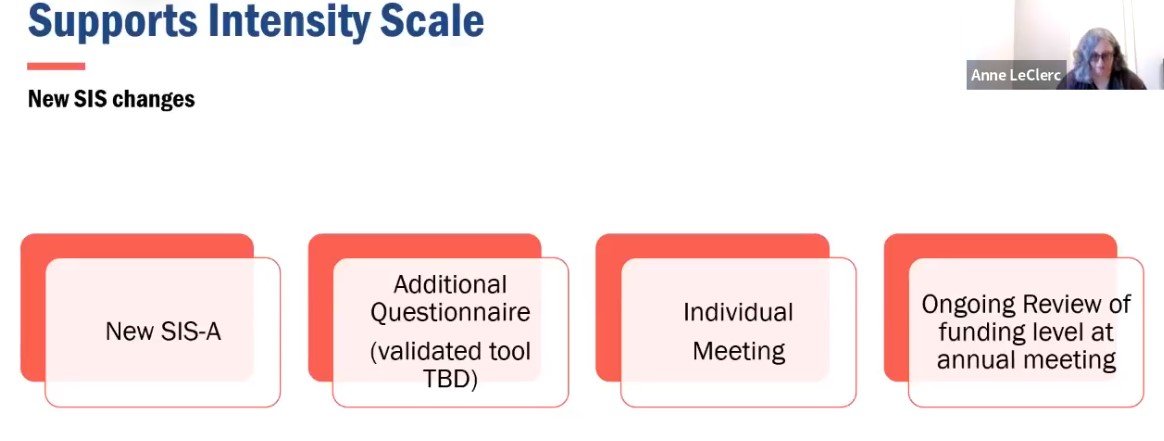By Gina Macris
A Providence School Department request that the federal government end its oversight of a special education program at Mount Pleasant High School is encountering some resistance and concern because of a more immediate development: The state is taking control of the entire “broken” school district.
Months ago, the city of Providence sought early termination of a landmark federal Interim Settlement Agreement, reached in 2013, in which the school department promised to make major changes in the way special education students at Mount Pleasant High School were being shuttled into a sheltered workshop program in North Providence.
The school system agreed to prepare students in the Birch Vocational Center at Mount Pleasant High School to take advantage of supported employment in the community and to participate in integrated non-work activities in compliance with the integration mandate of the Americans With Disabilities Act.
The U.S. Department of Justice and a federal court monitor are carefully considering the request and have solicited the opinions of various segments of the developmental disabilities community on the pros and cons of terminating the agreement now, a year before it is set to expire.
On July 23, the monitor, Charles Moseley, and Victoria Thomas, a lawyer for the DOJ, discussed possible early termination via conference call with members of the Employment First Task Force (EFTF), an advisory group on matters concerning the 2013 agreement and a broader, statewide consent decree signed in 2014.
On the same day, the Council on Elementary and Secondary Education voted, as anticipated, to empower the state Commissioner of Education to intervene in the Providence School District, taking temporary control, if necessary, of its budget, personnel, and governance.
Thomas said she was concerned about a recent report on Providence schools from Johns Hopkins University’s Institute on Educational Policy which found a deeply dysfunctional system where most students are not learning, principals are struggling to lead, teachers and students don’t feel safe, and some buildings are crumbling around them.
Mount Pleasant High School was one of 12 schools visited by the Johns Hopkins researchers.
At the same time, Thomas said, she personally has been “very impressed with the work Providence has done” with the Mount Pleasant special education students protected by the 2013 Interim Settlement Agreement. Over the last several years, Thomas has participated in many site visits at Mount Pleasant High, as has Moseley, who concurred with Thomas’ assessment. Having done similar visits in other states, Thomas said, she has been “blown away” by the quality of work done to put the needs and wants of students in Providence at the center of their individualized education plans.
“That doesn’t mean that everything is perfect,” Thomas said.
The Interim Settlement Agreement assumes that Mount Pleasant High School students will make a successful transition from school to adult services provided by the Department of Behavioral Healthcare, Developmental Disabilities and Hospitals. And Thomas said some of the comments that have been received from stakeholders in developmental disability services indicate that the DOJ and the monitor “really need to look into adult services.”
The Providence school department’s involvement in the Interim Settlement Agreement is set to expire in July, 2020, as long as the city is in “substantial compliance” a year ahead of time and the changes made during compliance are found to be lasting.
If the DOJ and the monitor agree to “early termination and we’re wrong,” Thomas said, the oversight of the state’s efforts to integrate adults with developmental disabilities in their communities will continue as part of the overlapping statewide consent decree signed in 2014.
“We’re not leaving anyone behind,” she said. Moseley added that the monitor and the DOJ will continue to have access to data about the progress of the same students as they merge into the adult population.
State Sen. Louis DiPalma, D-Middletown, who attended the task force meeting, expressed concern that even if implementation of the Interim Settlement Agreement has been going well at Mount Pleasant High School, the state of the school system around the program is in question.
Anne Peters, a parent who serves on the task force, asked whether continuing to monitor Mt. Pleasant High might be needed to protect the resources that have been brought to bear to change the prospects for special education students.
“I think we’re expecting quite the chaotic year” in Providence, she said.
“An excellent question,” Moseley said.
Several days before the meeting, Task Force leaders collected comments on early termination that made three main points:
There seems to have been significant progress at Mt. Pleasant, with special education students having meaningful work trials
Students still leave school unable to get the appropriate employment supports, like those from other communities, because providers are not accepting new referrals.
·The Johns Hopkins report will put Providence under pressure to make many reforms and it would be ill-advised to take the spotlight off students with developmental disabilities for fear they would once again get left behind.
Neither Thomas nor Moseley said when the decision would be made on early termination. Moseley has indicated he plans to complete a report on whether Providence is in substantial compliance with the Interim Settlement Agreement before he steps down as monitor on Sept. 30.









